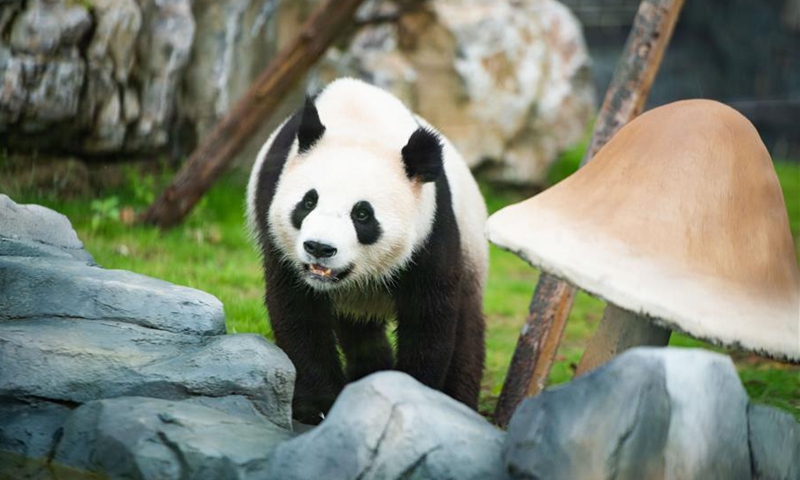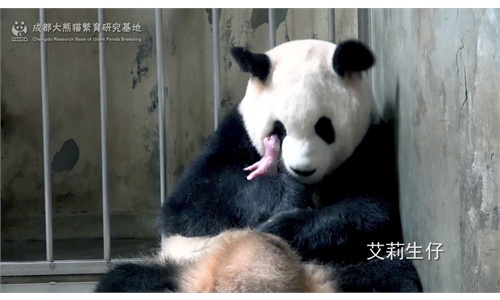
A giant panda is seen at a newly opened giant panda garden in Xiangxi Tujia and Miao Autonomous Prefecture, central China's Hunan Province, July 1, 2020. Eight giant pandas from southwest China's Sichuan Province made their debut at the garden. Photo:Xinhua
Twin giant panda cubs died of severe allergy in May just seven months after being born despite being saved two times, while the causes of the allergy remain unknown.
The Chengdu Research Base of Giant Panda Breeding in Southwest China's Sichuan Province revealed the case on Monday, saying it is the first time captive pandas have suffered such a severe allergy.
Occasionally, allergic reactions of giant pandas occur clinically, but the severe and recurrent types of allergy suffered by the two cubs - Shunshun and Liuliu - was a first in the history of captive giant pandas, the base said.
The veterinary team at the base have collected samples for further research. Experts are trying to find out the cause and solutions to the allergies.
Chinese netizens mourn the deaths of the twins on social media, while some heartbroken netizens demanded that the base to give further explanation on why it took such a long time to release the news.
Asked if it was possible for pandas to be infected with COVID-19, Diao Kunpeng, a panda expert and director of Beijing Qingye Ecology, told the Global Times on Tuesday there is no evidence to show that pandas can be infected with the virus.
The base did not mention any connection between the twins' deaths and COVID-19.
Diao believes that the Chengdu panda base has a very strong medical team in taking care of the pandas, who are closely watched for signs of COVID-19 infection.
Zhang Zhihe, the director of the panda base, had said in May that all giant pandas in the base have received nucleic acid tests, which all came back negative.
The twins, born on October 11, 2019, first developed symptoms such as refusing to eat and acute diarrhea on April 26. The base immediately quarantined them and implemented routine anti-infection treatments and nutritional support.
But during the course of treatment, the two cubs showed severe allergic reactions, such as bulging eyes, mandibular swelling and cyanosis of the tongue and blockage of the airway and apnea. The two pups were temporarily brought out of danger after rescue treatment including tracheal intubation. They had to rely on parenteral nutrition to live as they were unable to eat by themselves.
Both pups then suffered a sudden and more severe allergic reaction in later treatment, resulting in the failure to implement treatment that relied on parenteral nutritional support.
The base brought in experts to check on the two pandas, whose allergic reaction and physical condition continued to deteriorate.
Shunshun and Liuliu eventually died of multiple organ failure on May 11 and May 20 respectively, the base said.
There are 600 captive pandas worldwide, China's National Forestry and Grassland Administration said in 2019.
Global Times


